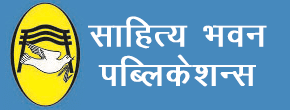In the present complex business world, management accounting has become an integral part and useful tool of a management system. In fact, management accounting represents a happy blending of two older professions of ‘Management’ and ‘Accounting’, which leads to the success of a business concern through accounting control and managerial efficiency.
Salient features of the book:
- The subject-matter has been arranged and systematized strictly according to the course prescribed for B.Com. The third year of the year-wise syllabus.
- Chapters on Ratio Analysis and Cash Flow Statement have been thoroughly revised. The unique feature of the book is that chapter on Cash Flow Statement has been revised on the basis of AS-4 (Revised) The revised AS-4 prescribes that ‘proposed dividend’ will be treated as ‘Contingent liability’ instead of short-term provisions.
- Two New Chapters on International Financial Reporting Standards (IFRS) with the latest list of IFRS and Leverage Analysis have been included in the book.
- The language and style of presentation are very simple and the subject-matter has been divided into various headings and sub-headings so as to give flow in studying this numerical subject.
- Both theoretical and numerical aspects of the subject have been given due importance. The numerical illustrations have been carefully graded with supporting theoretical background. At many places, explanatory notes have also been given to clarify the working of solution.
- Numerical illustrations and questions have been arranged in a systematic and scientific sequence from simple to complex.
- Illustrations and questions both have been arranged in an identical sequence so that students can easily solve the questions after understanding the illustration in the same order.
- In the selection of illustrations and questions priority has been given to university examination papers so that students may make practice according to that standard.
- Short answer and objective type questions (Theoretical & Numerical) have also been incorporated according to a new examination pattern.
- Standard but simple formulae have been used in different chapters and at the end of each chapter, all formulae relevant to that chapter have been given at one place.
- An important feature of the revised edition of this book is that all relevant chapters have been re-drafted as per revised format of Balance Sheet and Statement of Profit & Loss given in Schedule III of the Companies Act, 2013
Management Accounting Syllabus For B.Com. III Year
Unit – I: Management Accounting: Meaning, Nature, Scope and functions of management accounting, Role of management accounting in decision making, Management accounting vs. financial accounting and cost accounting. Tools and techniques of management accounting.
Unit – II: Financial statement: Meaning, Importance, Limitations of financial statements, Objectives and methods of financial statements analysis, Ratio analysis, Classification of ratios – Profitability ratios, Turnover ratios, and Financial ratios, Advantages of ratio analysis, Limitations of accounting ratios.
Unit – III: Statement, Cash Flow Statement (As per Indian Accounting Standard-3) IFRS-Concept & Importance. Leverages.
Unit – IV: Absorption and Marginal Costing: Marginal and differential costing as a tool for decision making-make or buy, Change of product mix, Pricing, Break-even analysis, Exploring new markets, Shutdown decisions of Production.
Unit – V: Budgetary Control: Meaning of Budget and budgetary control: Objectives, Merits, and limitations, Types of budget: Cash budget and Flexible budget. Concept of Management Audit, Responsibility Accounting. Management Reports, Types of reports and quality of the good report.
Management Accounting Book Contents
- Management Accounting (An Introduction)
- Financial Statements
- Analysis of Financial Statements
- Ratio Analysis
- Cash Flow Statement (as per AS–3)
- International Financial Reporting Standards (IFRS)
- Leverage Analysis
- Absorption Costing and Marginal Costing
- Marginal Costing (as a tool for Decision Making)
- Differential Costing
- Cost-Volume-Profit Analysis (Break-Even Point)
- Budget and Budgeting
- Budgetary Control
- Cash Budget
- Fixed and Flexible Budgeting
- Management Audit
- Responsibility Accounting
- Management Reports













![व्यष्टि आर्थिक विश्लेषण (Micro Economic Analysis) [for Various Universities]](https://i0.wp.com/sahityabhawanpublications.com/wp-content/uploads/2017/10/270-Micro-Economics-Analysis.jpg?resize=245%2C300&ssl=1)


Reviews
There are no reviews yet.